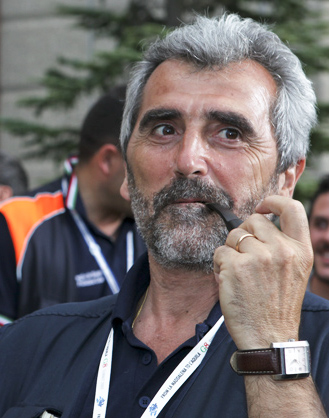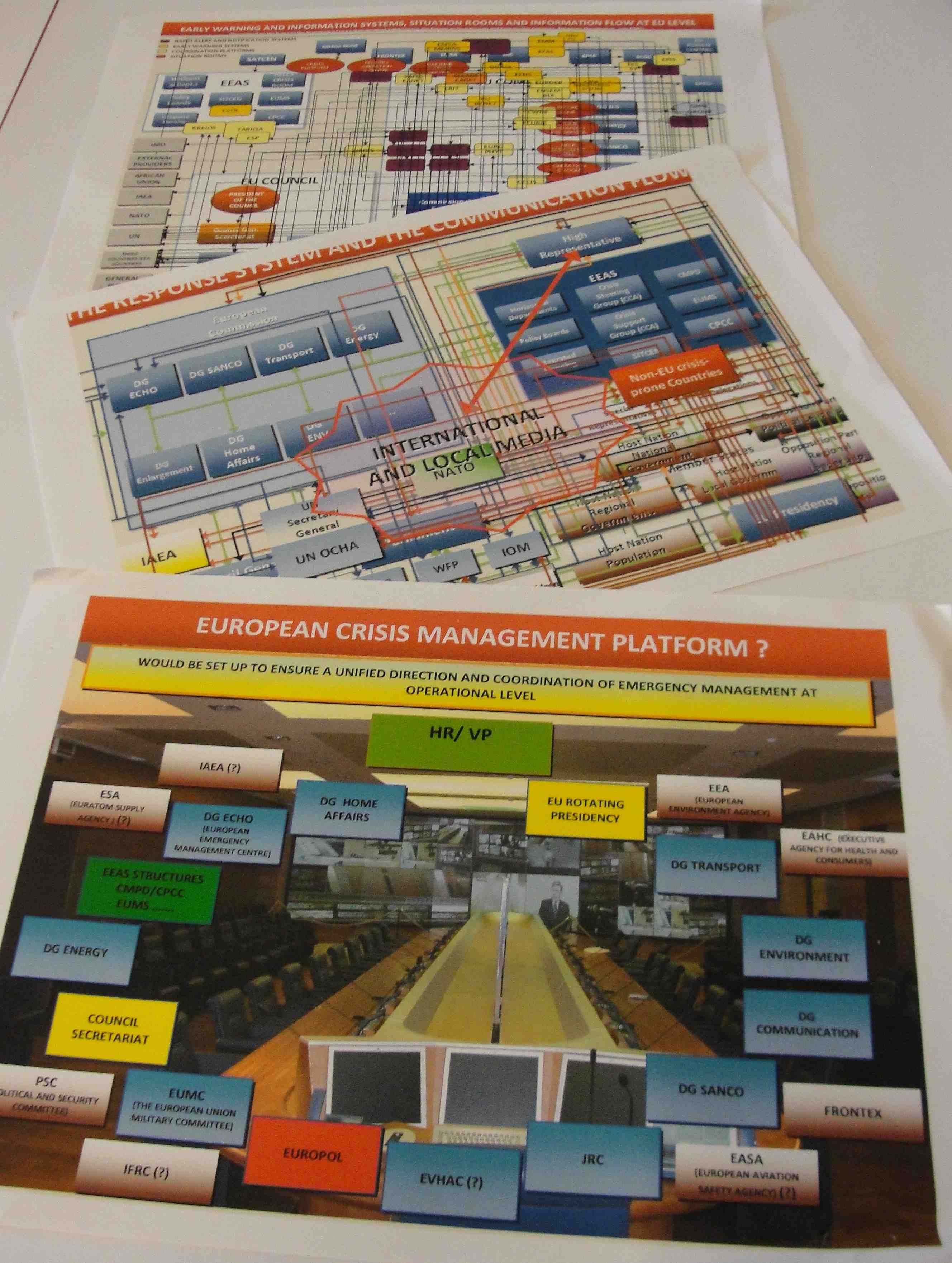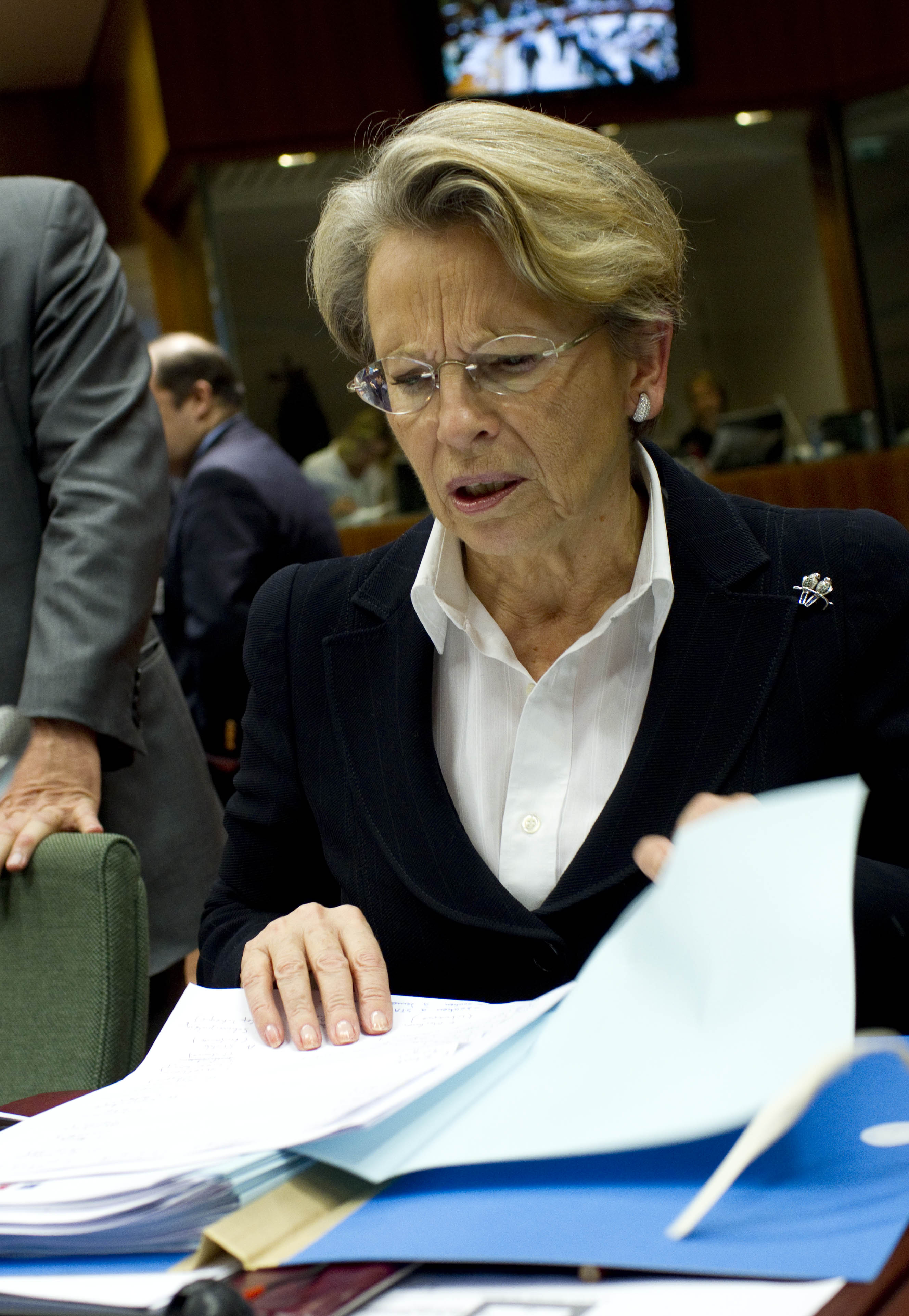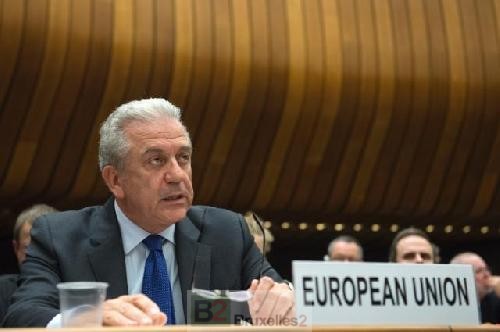A. Miozzo: Europe must learn to react in real time to disasters

(B2 - Exclusive) 15th floor of the Charlemagne building. There sits the “top management” of the diplomatic service. Few maps on the wall. No decorum or large, imposing halls as found in most foreign ministries in Europe. Rather anonymous corridors, photocopiers, functional offices. And especially moving boxes piled up in the corners... European diplomacy is moving in. In one of these offices, I have an appointment with Agostino Miozzo, brand new director of the “operational coordination and crisis response” Department in the diplomatic service.
A post which was not planned in the first presentation of the diplomatic service, but which imposed itself in view of the first experiences (in particular the European response to Haiti which was not considered up to the height of the new service). Dr. Miozzo is passionate about this new mission which undoubtedly takes him away from the field and his luminous Italy.
The new director summarized his mission for me using several diagrams: what exists today (a certain number of structures which act in their different spheres), what risks existing in major catastrophes (the chaos ), and what can exist in a crisis situation (a crisis room bringing together all the actors).
Because Europe has almost all the instruments to respond to a major crisis in the world. She intervenes often. But sometimes messy. And, above all, she does not know it and does not let it be known.
The European Union already has several crisis cells, I counted a dozen, that's not enough. Want to add another?
- Effectively. We have at least ten crisis cells (1). But, last Christmas, for example, there was only one person on duty for all the institutions... This is not tenable. The first thing to do - and what I propose - is to strengthen this structure of permanence. We need not one person but a team ready to react, present on the premises, 7 days a week, 7 hours a day, 24 days a year.
We must change the culture of the time,
learn to react in real time
A permanent person is not enough?
— We must understand that the reaction time of the structure must be the reaction time of the disaster. We cannot be at the time of comitology. We are in real time. We must also understand that disaster, especially on a large scale, does not come at the best time, when everyone is there, but at the worst time. She usually doesn't respect weekends or holidays. When this happens, one person is not enough. And we can't wait hours for the others to arrive as reinforcements. The time of the action is counted in minutes, at most in hours, not in days.
What does that mean ? Should the entire crisis management structure be changed?
- No. It's not necessary. We have a magnificent structure. We have capacities, extraordinary skills that we do not suspect. We have ECHO (the Humanitarian Office) which has 20 years' experience in humanitarian aid, the MIC for civil protection, the military at the General Staff... In the various directorates-general of the Commission, there are real specialists, experienced, on almost all subjects. We must therefore not reinvent hot water. It is not necessary to create one more managerial capacity. It is simply necessary to help this capacity to react in real time, to allow the High Representative and Vice-President of the Commission to react in real time, without duplicating the already existing competences.
A crisis platform
where to bring together all the actors
What is missing then?
- Not much. We need both strong internal coordination and good coordination on the spot, internal coordination and coordination with the Member States. A crisis platform bringing together all the players concerned, under the authority of the High Representative. This platform must be supported by an operational crisis room. We must also give visibility to European action on the ground.
Coordinating is good. But who will do it?
'That's the whole point. On the theoretical level, everyone agrees on coordination. It actually becomes more difficult when one becomes coordinated. If in ordinary life (excluding disasters), we necessarily coordinate, everyone remains in control of their decisions, the chains of command are different. And time is slow. In a crisis, something else is needed to be effective. It therefore becomes a structure with a chain of command, a precise, quasi-military line of decision-making. We don't have time for administrative discussion. Immediate decisions have to be made.
Why not have a simple “crisis plan”?
- It's not enough. The difficulty is that we cannot create this chain of command in a hurry. It must be known in advance. Everyone must know what to do and what others can do. The disaster management structure must therefore be created from the beginning. We must have a "crisis situation room" where everyone can meet when the time comes. We need to change the culture of the time.
Your biggest enemy is time if I understand?
— Yes, it's the watch, my big problem (he shows me his watch). This may sound ridiculous. But we must be able to react within the hour. We must have within the hour following the first crisis meeting, and no less than 3 to 6 hours before the decision and the departure of the first means, at any time of the day... or night. And organize a communication to the press in stride. We live in a time where cell phones are everywhere. Even the Bedouin in the desert has a cell phone with a camera. The time when information passes through the media has been shortened. And therefore our time for reflection and decision. If the High Representative is informed after CNN, we have lost, she must be informed (at the most) at the same time.
Aren't you going to redo the work of ECHO, of the MIC of other structures?
- No. Everyone will continue to do their job, as they do today. We are not here to coordinate everything. The “ordinary” disaster, which concerns only one aspect of European activity (famine in a country, forest fires, etc.), we will not intervene. It will only be in the event of a mega disaster that forces several sectors to work together that we will intervene. This will in no way prevent Member States from continuing to take action bilaterally, if they so wish, and as they have already done in the past. But we will avoid duplication, we will better coordinate our action, knowing who intervenes where.
Do you think it's the right time?
- Yes. It is time. The skills are there, the civil servants are prepared. Lady Ashton is totally convinced of this necessity. I also spoke about it to the ambassadors of the COPS (the political and security committee), for example. They all agree. There is a political consensus now.
Ooptimization, non-duplication, responsiveness...
these are the keywords today
In what situations can this crisis cell be deployed?
— The disaster in Haiti can be taken as an example. In these extraordinary emergency situations, we must put together the capacities, the consular skills, the armed forces, the security structures... It is this kind of complex situation that we must learn to manage. We can no longer tolerate having several EU missions leaving for the same country, to do more or less the same thing, without any real connection between them (2), a plane leaving half full in a disaster situation or several field hospitals established in the same place while there are other needs elsewhere. We are in great financial difficulty in the Member States. We must rationalize our effort. Optimization, non-duplication, responsiveness, these are the keywords today.
You talk about a mega-catastrophe, does that seem likely to you?
- Unfortunately yes. At the current rate, we are experiencing an acceleration of disasters. And no one can take the risk of saying that there will be nothing in the years to come. Just look back in recent years. Chernobyl in 1986… Armed conflicts in Iraq, Somalia, Yugoslavia, Rwanda, Afghanistan… Natural disasters like Hurricane Mitch or Katrina, the Tsunami, the oil spill in the Gulf of Mexico, not to mention the Icelandic volcano. Imagine if it had lasted six months, we had to completely change our way of life. Imagine an oil spill in the North Sea or the Mediterranean...
You talk about visibility, is that also a necessity?
— The perception has changed. Europe is expected to intervene. And she shows it. Taxpayers expect the return of what they give. Europe is the leading contributor to the UN, in terms of development or humanitarian matters. Citizens must be given the feeling that Europe is still there. And, I can talk about it all the more freely as I was acting under the Italian bilateral hat until today, the rescuers are ready. They are proud to display both their national emblem and the European emblem on their uniform when they intervene. So... why hesitate. We must reinforce this double pride of being national and of being European.
Read also:
- Two official appointments to the Diplomatic Service
- An Italian Doctor in the diplomatic service for crisis response?
- Georgieva advances new ideas: CERU, a European emergency response center
- A crisis management "clean room" for the EU?
- Around ten structures can be cited, such as: the ECHO operations room and the MIC, the 'crisis platform' for the EU delegations, the Frontex 'operations centre', the maritime support service at the Maritime Safety Agency, the emergency cell at DG Sanco, the 'radiological monitoring structure' at DG Energy, the 'secure room' of DG Home Affairs which can be mobilized in the event of terrorism, the duty office of DG Admin. Not to mention the defense structures like the SitCen and the " watch keepers to the EU Military Staff (EUMS).
- According to the information obtained, moreover, it seems that the various European structures that left for Haiti (ECHO, MIC, SitCen, etc.) a year ago did so at the start without really coordinating...




The GIE ACCESS (www.gieacces.eu) is working on setting up an air base dedicated to first aid on the site of the former BA132 in Colmar Meyenheim (between France / Germany and Switzerland). Rationalization of efforts can more easily be done by European private companies than by a European agency.
This is the challenge for the next ten years: the creation of public-private partnerships in the field of civil security and more generally in crisis response. Logistical and technical support by private operators, live response and command forces by civil security men (85% volunteers and professionals), supervision, steering and financing by the EU via the Member States ( EU diplomatic service, finance and market, ECHO) through the CERU (European emergency response centre).
2011 is the European Year of Volunteering, several PPP projects are ready both in Alsace on the BA132 from Colmar and in the PACA region (Provence Alpes Côte d'Azur) around the base of Salon and Marignane.
France has the capacity to offer a first European test “aircraft carrier” in the continuity of the EUFFTR (european union forest fire tactical reserve). These databases could be reproduced at will on a European scale without additional specific acquisition but simply by pooling and coordinating what already exists.
Everything is ready: human resources, techniques, logistics, availability and finances with the EUSF and other emergency crisis response budgets (see Haiti). The validation now belongs to the European decision-makers in the Parliament and the Commission so that a response to the crises clearly displayed under the European flag is visible to all. Yes! the emergency personnel are ready to wear the national and European colors in the response to crises. The decision is no longer technical...